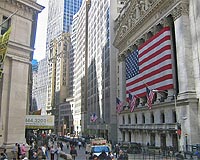| . |  |
. |
Exeter, UK (SPX) Dec 21, 2010 New research into the health benefits of beetroot juice suggests it's not only athletes who can benefit from its performance enhancing properties - its physiological effects could help the elderly or people with heart or lung-conditions enjoy more active lives. Beetroot juice has been one of the biggest stories in sports science over the past year after researchers at the University of Exeter found it enables people to exercise for up to 16% longer. The startling results have led to a host of athletes - from Premiership footballers to professional cyclists - looking into its potential uses. A new piece of research by the university in conjunction with the Peninsula College of Medicine and Dentistry has revealed the physiological effects of drinking beetroot juice could help a much wider range of people. In the latest study, published in the Journal of Applied Physiology, the researchers looked at low intensity exercise and found that test subjects used less oxygen while walking - effectively reducing the effort it took to walk by 12%. Katie Lansley, a PhD student from the university's Sport and Health Sciences department and lead author of the study, said: "As you get older, or if you have conditions which affect your cardiovascular system, the amount of oxygen you can take in to use during exercise drops considerably. This means that, for some people, even simple tasks like walking may not be manageable. "What we've seen in this study is that beetroot juice can actually reduce the amount of oxygen you need to perform even low-intensity exercise. In principle, this effect could help people do things they wouldn't otherwise be able to do." When consumed, beetroot juice has two marked physiological effects. Firstly, it widens blood vessels, reducing blood pressure and allowing more blood flow. Secondly, it affects muscle tissue, reducing the amount of oxygen needed by muscles during activity. The combined effects have a significant impact on performing physical tasks, whether it involves low-intensity or high-intensity effort. So far the research on the impacts of beetroot juice has only been carried out on younger people who are in good health, but the researchers believe there is no reason why the effects of beetroot juice wouldn't help others. "While we haven't yet measured the effects on the elderly or those with heart or lung conditions, there is the potential for a positive impact in these populations which we intend to go on and investigate further," Katie Lansley added. Beetroot juice contains high levels of nitrate. The latest study has proved that this is the key ingredient which causes the increase in performance, rather than any other component of the beetroot juice. Professor Andy Jones, the senior scientist on the study and a pioneer of research into beetroot juice, said: "In this study, we were able to use - for the first time - both normal beetroot juice and beetroot juice with the nitrate filtered out. Test subjects didn't know which one they were getting. The drinks both looked and tasted exactly the same. Each time the normal, nitrate-rich juice was used, we saw a marked improvement in performance which wasn't there with the filtered juice - so we know the nitrate is the active ingredient."
Share This Article With Planet Earth
Related Links University of Exeter All About Human Beings and How We Got To Be Here
 Our Flawed Understanding of Risk Helps Drive Financial Market Instability
Our Flawed Understanding of Risk Helps Drive Financial Market InstabilityLondon UK (SPX) Dec 20, 2010 our flawed understanding of how decisions in the present restrict our options in the future means that we may underestimate the risk associated with investment decisions, according to new research by Dr ole Peters from Imperial College London. The research, published in the journal Quantitative Finance, suggests how policy makers might reshape financial risk controls to reduce market instability ... read more |
|
| The content herein, unless otherwise known to be public domain, are Copyright 1995-2010 - SpaceDaily. AFP and UPI Wire Stories are copyright Agence France-Presse and United Press International. ESA Portal Reports are copyright European Space Agency. All NASA sourced material is public domain. Additional copyrights may apply in whole or part to other bona fide parties. Advertising does not imply endorsement,agreement or approval of any opinions, statements or information provided by SpaceDaily on any Web page published or hosted by SpaceDaily. Privacy Statement |